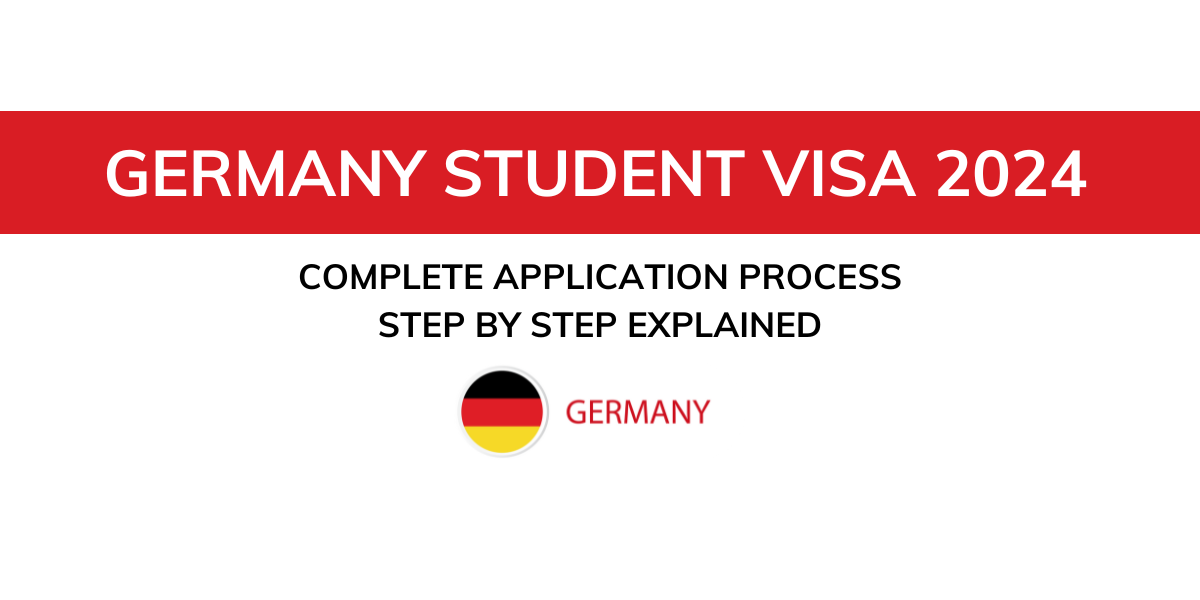If you want to study in Germany, you need to apply for a Germany Student Visa. Studying in Germany is affordable compared to many other countries. There are universities with low or no tuition fees, and students with GPAs of 2.1 and 2.2 can also get admission to German Public Universities. A German degree can open up many opportunities for you.
Germany Student Visa 2024
Germany is becoming a popular destination for students worldwide because of its low tuition fees, numerous scholarship options at German universities, and part-time work opportunities. Getting a visa to study in Germany is a good choice, and you’ll also need a residence permit. The German embassy will process your visa application, and the Germany student visa is a long-term visa. Below, you’ll find more information, required documents, and details about the application process.
Germany Student Visa Requirements:
- Bachelor’s degree in Germany requires completion of 12 years of education.
- Master’s degree in Germany requires completion of 16 years of education.
- Once accepted to a German university, provide proof of educational qualifications (secondary education certificates, transcripts, and higher education degrees).
- Show evidence of financial capability to cover living expenses (minimum €11,208 per year as of 2023), unless exempted due to a scholarship.
- Opening a block account in Germany is a common method to fulfill financial proof.
- If required, demonstrate proficiency in the German language to the German Embassy or Consulate (usually at least level B2).
- Visa application fee payment proof.
- Obtain travel health insurance before traveling to Germany.
Exemption for Germany Student Visa:
1. Exempt from Visa Requirement: Citizens of EU and EFTA States
- Citizens from Iceland, Liechtenstein, Norway, or Switzerland do not require a visa or residence permit to enter Germany.
2. Visa-Free Entry for Specific Countries:
- the Republic of Korea, New Zealand, the United Kingdom of Great Britain, Australia, Israel, Japan, Canada, Northern Ireland, and the USA can enter Germany without obtaining a visa.
3. Visa Application Required for Other Nationals:
- Non-EU citizens from other countries must complete a visa application at their local German embassy or consulate prior to entering Germany.
Categories of German Visas for Educational Purposes
If your intention for visiting Germany is primarily educational and extends over the long term, you must proceed to apply for the Germany National Visa (D Visa), designed for prolonged stays.
There are three distinct types of German Student visas:
- Language Course Visa:
- Applicable for German Language Courses lasting from 3 months to 1 year.
- Student Applicant Visa:
- Designed for individuals who haven’t received a formal admission letter from their intended university. This visa allows participation in entrance examinations offered by the university and is initially valid for 3 months, with the option to extend it to 6 months.
- Student Visa:
- A long-term visa is granted to individuals who have been accepted into a German university for a bachelor’s, master’s, or Ph.D. degree program.
Applying for the Germany Student Visa: A Simple Guide
The process of applying for a Germany student Visa is straightforward. Once you’ve completed all the necessary steps and gathered all required documents:
- Visit the German Embassy or Consulate in your country to submit your application.
- Determine which German embassy or consulate is relevant to your visa application by referring to the World Map. Set up an appointment, review the updated list of required documents for a study visa, and check the processing time.
- It is recommended to initiate your application at least 3 months in advance.
- Please consult the World Map to identify your country, as the application procedures may vary for each nation.
Visa Fees and Residence Permit Application in Germany
The fee for a German student visa is €75. To determine if you qualify for an exemption from the visa fee, refer to this link.
Upon arriving in Germany, you must apply for a residence permit at the residents’ registration office nearest to your residence. Residents and fellow students can assist you in this process.
With a residence permit, you gain the following privileges:
- Work during your study program.
- Stay in Germany upon completion of your program.
- Remain in Germany after obtaining your degree.
Following the completion of your education, you have several options to stay in Germany. You can apply for the Job Seeker Visa, or if you have received a job offer, you may apply for the German Employment Visa.
Check the following Opportunities in Germany:







